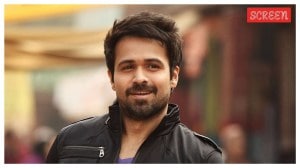Fleming drops a bombshell, quits ODI captaincy
Not among those to beat around the bush, hide behind excuses or even try to cannibalize meaningless positives by peripheral post mortem...

Not among those to beat around the bush, hide behind excuses or even try to cannibalize meaningless positives by peripheral post mortem, Kiwi captain Stephen Fleming was his usual direct self after the semi-final defeat. He was brutally blunt in saying that his was a country of limited world-class talent resources that has simply been not good enough to make it to the World Cup final.
He regretted that he wasn8217;t able to change that and confessed that his team was outclassed by the gifted Sri Lankans.
But then suddenly like that famous Fleming hunch, that typified his long rein at the top and made him the best in business, the Black caps captain caught everyone by surprise. As is the trend with most press conferences, yesterday too that mandatory inquiry to all captains on the exit door was floated. Where do you go from here? Without raising his voice or even inserting a dramatic pause, Fleming with a deadpan expression said: 8220;I want to keep playing the one-dayers but I have stepped down as a one-day captain. I want to continue leading the Test side, but want to be merely a batsman in one-dayers. I want to finish my career with statistics that are worth a player like me,8221; he said.
Jaws dropped and heads turned around to seek clarification from attentive neighbours to inquire if they had heard it right. It was somewhat the same initial reaction that New Zealand captain induced by his out-of-box moves on the field. It was the kind of disbelief that initially defied logic but gradually made sense. Just the other day in the game against South Africa, Fleming had thrown the ball to part-timer Craig McMillan despite the fact that his top bowlers were among wickets, but at the end of the innings there were no clarifications sought.
Something similar happened here but this one needed Fleming8217;s explanation. He spoke how the team needed fresh ideas and enthusiasm and how his efforts were just as good as the previous captains who too had failed to give New Zealand a shot at the title.
Coming up with the right words even in the most nervous times he said: 8220;We have to still learn that the semi-final is nothing but a line in the sand.8221;
Fleming, the leader, was someone who set high standards for himself and his team, it wasn8217;t enough for him to merely match the previous high. The only time Fleming showed a bit of emotion was when he spoke about how 8220;we would have loved to hold the Cup in hand and say thank you.8221;
He had pre-decided this move but kept to himself. With the Cup not materialising, he still stuck to his plan. Fleming aspired to be the best, and when that didn8217;t happen, he stepped aside with minimum fuss and made way for someone else to take a shot.
He endorsed that his deputy Daniel Vettori had done well in the thinktank over the last one year, but left it to the selectors and the board to take the final decision.
Coach John Bracewell too got his thumbs up and added that he too should stay back. Like all great leaders Fleming was taking the responsibility of the loss on himself and he was also ensuring that smooth transition.
He said how he had given a lot of thought to the entire thing and concluded that 8220;throwing someone to the deep end8221; didn8217;t quite help and the graduation from the one-day to Test captaincy was a long-term solution.
Just a few days back the man who will be the king now had joked about Fleming. When someone asked how it helps those around him to have the world8217;s top cricketing brain at arm8217;s length that naughty grin escaped from his lips. 8220;It is I who make all the decisions, Flem just gets the credit,8221; he had said.
But soon added how he wants his skipper to stay around after the World Cup. In the recent coming one-dayers that comment about the 8216;unsung deputy8217; being the actual decision maker might come true in New Zealand cricket.
As a habit Vettori will turn to Fleming standing next to him in the slips when things aren8217;t on track. It will now be Vettori8217;s chance to take the credit when Fleming would convey to him his famous hunch.
- 01
- 02
- 03
- 04
- 05































